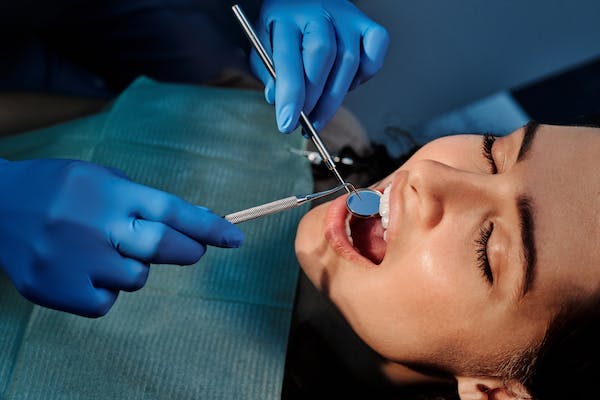
Teeth whitening is a popular cosmetic dental procedure that can improve the appearance of your teeth by removing discolorations and stains. But how often should you do it? In this article, we will discuss the recommended frequency for teeth whitening and answer some common questions about this topic.
Introduction
Everyone wants to have a bright, healthy smile. But for many people, teeth stains and discolorations can be a frustrating problem. Fortunately, teeth whitening is a safe and effective solution that can help you achieve the smile you’ve always wanted.
However, it’s important to understand that teeth whitening is not a one-time procedure. The effects of whitening treatments can fade over time, and you may need to repeat the process to maintain your results.
So how often should you whiten your teeth? Let’s find out.
Types of Teeth Whitening:
There are two main types of teeth whitening: professional and at home.
Professional teeth whitening is done at a dentist’s office and involves a higher concentration of whitening agents than at-home options. This means it can give you faster and more dramatic results, but it also comes with a higher price tag.
At-home teeth whitening can be done using over-the-counter products like whitening strips, gels, and toothpaste. These products contain lower concentrations of whitening agents and can take longer to show results.
How Often Should You Do It?
The frequency of teeth whitening depends on the type of treatment you choose and your individual needs. Here are some general guidelines:
Professional Teeth Whitening:
If you choose to go with professional teeth whitening, you can expect to have your teeth whitened once every six months to a year. However, if you have particularly stubborn stains or if you’re a heavy coffee or red wine drinker, you may need to have it done more frequently.
At-Home Teeth Whitening:
If you’re using an at-home whitening product, you should follow the manufacturer’s instructions carefully. In general, it’s safe to use these products once every six months, but you should avoid overuse as it can damage your tooth enamel and lead to tooth sensitivity.
Maintaining Your Results:
- Teeth whitening is not a permanent solution, and the results will eventually fade over time. However, there are things you can do to maintain your bright smile:
- Brush and Floss Regularly: Regular brushing and flossing can help remove surface stains and keep your teeth looking their best.
- Avoid Staining Foods and Drinks: Try to limit your intake of coffee, tea, red wine, and other staining foods and drinks.
- Visit Your Dentist: Regular dental checkups can help catch any potential problems early and keep your teeth in good shape.
Factors That Affect Teeth Whitening Results:
There are several factors that can affect the results of your teeth whitening treatment, including:
-
- The severity of your teeth’ stains and discolorations
- The type of whitening treatment you choose
- The concentration of the bleaching agent used in the treatment
- The length of time you leave the whitening product on your teeth
- Your oral hygiene habits
- Your diet and lifestyle habits, such as smoking or drinking coffee or red wine
Conclusion:
Teeth whitening is a safe and effective way to improve your smile, but it’s important to do it in moderation. Whether you choose professional or at-home whitening, be sure to follow the guidelines and maintain good oral hygiene. With a little effort, you can enjoy a bright, beautiful smile for years to come.
FAQ:
Q: Are teeth whitening safe?
A: Yes, teeth whitening is generally considered safe when performed by a dental professional or when using a reputable at-home whitening kit. However, it’s important to follow the instructions carefully and avoid overusing the product.
Q: How long do the results of teeth whitening last?
A: The results of teeth whitening can last anywhere from six months to two years, depending on your individual habits and the type of treatment you choose.
Q: What should I do if I experience tooth sensitivity after teeth whitening?
A: If you experience tooth sensitivity after teeth whitening, try using toothpaste for sensitive teeth or talk to your dentist about other options.
Q. Does teeth whitening hurt?
Some people may experience tooth sensitivity or gum irritation during or after teeth whitening. However, these side effects are usually temporary and can be managed with over-the-counter pain relievers or sensitivity toothpaste.
Q. How long do teeth whitening last?
The effects of teeth whitening can vary depending on the individual and the type of treatment used. In general, most people can expect their whitening results to last for 6-12 months.




